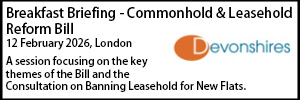London borough first to receive lowest grade from Regulator of Social Housing
- Details
The Regulator of Social Housing (RSH) has handed its first C4 grading – the lowest possible – to the London Borough of Newham, meaning “there are very serious failings and fundamental changes are needed”.
The council is the first recipient of the grading since the Regulator began its new proactive planned inspections in April.
During an inspection at Newham, RSH found:
- more than 9,000 overdue fire safety remedial actions, of which over 8,000 were overdue by more than 12 months and more than 4,000 categorised as high risk
- 40% of the council’s 16,000 homes had not had an electrical condition test for more than 11 years
- a lack of evidence that Newham is meeting the smoke and carbon monoxide alarm requirements for any of its homes
- a lack of accurate information on stock quality, with 60% of its homes without a survey within the last five years
- at least 20% of the council’s homes do not meet the requirements of the Decent Homes Standard
- there were around 5,400 open repairs, nearly half of which were overdue
- tenant satisfaction measure (TSM) surveys were not completed on time
- there were very limited meaningful opportunities for tenants to influence and scrutinise the landlord’s strategies, policies and services.
The Regulator said fundamental changes were needed so that improved outcomes are delivered, specifically in relation to outcomes in its Safety and Quality Standard and its Transparency, Influence and Accountability Standard.
Although the RSH acknowledged that Newham had indicated a willingness to address these failings, it noted that the council had failed to refer itself over key issues.
The Regulator added that it had not yet seen sufficient evidence to assure it of Newham’s ability to put matters right.
Kate Dodsworth, Chief of Regulatory Engagement at RSH, said: “The breadth and scale of these failings, including very serious health and safety issues, pose an unacceptable risk to tenants’ well-being.
“Taking accountability is a critical part of the co-regulatory approach and it is extremely concerning that, despite the gravity of these failings, the landlord failed to refer themselves to us over key issues.
“We are now engaging intensively with LB Newham as they work to resolve these issues. While we are not proposing to use our enforcement powers at this stage, this will be kept under review.”
Apologising to tenants following publication of the grading, Newham said it had already taken action on the majority of issues identified to ensure rapid improvement for its tenants. It added that it would work alongside the Regulator.
Abi Gbago, Newham’s Chief Executive, said “We take our responsibilities as a landlord very seriously. And we accept that we have let our tenants down in the areas outlined by the Regulator.
“We unequivocally accept all the recommendations in the report. They will be addressed in the programme of improvement already well under way.
“We can and must do better for our tenants. We have long been prioritising actions aimed at keeping residents safe, making many improvements even since the inspectors visited us in May. In line with our culture of openness and transparency, we welcomed the inspector’s review of our how well we are delivering the outcomes of the consumer standards, providing them with opportunities to meet tenants, officers and councillors.”
Cllr Shaban Mohammed, Lead Member for Housing Services and Modernisation, said: “Keeping our tenants safe is our priority – which is why we were one of the first councils in London to take action to remove cladding from high rise blocks following the Grenfell Fire tragedy.
“The regulators have rightly focused on areas where we need to move further and faster – but I am glad they haven’t felt it necessary to take enforcement action against us. I will be closely monitoring the improvement plan and the way our improvement programme is delivered.”
Since April, 12 local authorities have received C3 grades (of which 10 followed self-referrals) for serious failings that they need to address.
The latest of these was Harlow District Council, which received the grade as it has only carried out fire risk assessments for just over 20% of its tenants who live in blocks that require them. Additionally, it had more than 500 overdue high risk remedial actions and around 1,500 overdue medium risk actions, of which more than 1,000 had been overdue for longer than 12 months.
Also in September 2024, Castle Point Borough Council received a C3 grade as it had not collected tenant perception information in 2023/24. The authority was therefore unable to submit the performance information required to deliver the outcomes of the Transparency, Influence and Accountability Standard.
Harry Rodd







































